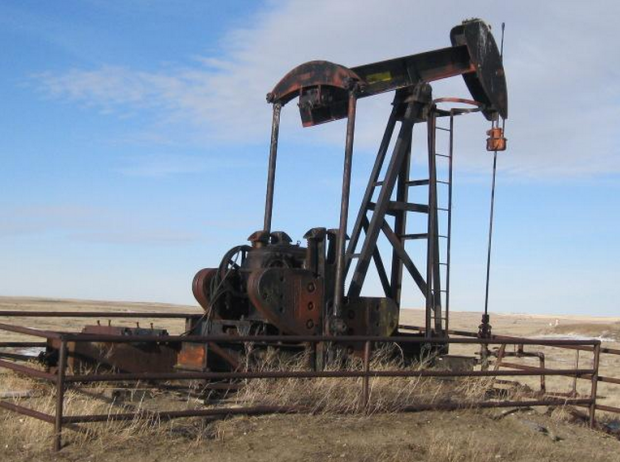OPINION | An offer Alberta couldn't refuse
This column is an opinion from Max Fawcett, a freelance writer and the former editor of Alberta Oil magazine.

When Jason Kenney tabled the report from his "fair deal panel" last month, it effectively opened a new front in his own long-running conflict with the federal Liberal government.
But the latest results from a long-running survey on Canadian attitudes from the Environics Institute suggests he might want to reconsider this particular fight.
After all, the proportion of Albertans who feel so mistreated by the rest of Canada that they support independence dropped from 56 per cent to 43 per cent — and that's from a survey that was conducted before COVID-19 hit.
Kenney's government has yet to really thank Ottawa for its numerous interventions. Those include spending $1.7 billion to help Alberta address its growing orphan well problem and a series of loan guarantee programs for the oil and gas industry as well as national programs like the Canada Emergency Response Benefit (CERB) or the Canada Emergency Wage Subsidy (CEWS).
Even so, it's hard to imagine that Albertans will be totally blind to the contributions that Ottawa is making right now — and that they'd somehow be more enthusiastic about the idea of separating from Canada as a result.
But if Justin Trudeau wants to bring western alienation to heel once and for all, he should do something even more radical: actually address the concerns of western Canadians.

No, that doesn't mean changing the equalization formula, if only because there is no possible change that would make Alberta a beneficiary of the program.
Despite a downturn in oil and gas prices that has been going on for almost six years now, Albertans still earn far more than other Canadians. According to Statistics Canada, the median household income in Alberta was $72,700 in 2018 — more than $10,000 higher than the national figure.
If those incomes do eventually drop down below the national median, the minutiae of the equalization formula will be the least of Alberta's concerns.
But it does mean acknowledging that Albertans have been massive net contributors to confederation this century, and doing something to recognize that investment.
Yes, the federal government bought and is building the Trans Mountain pipeline expansion, but that's as much about protecting its financial interests as it is about advancing Alberta's.
And while Ottawa has expressed a willingness to reconsider the terms of its fiscal stabilization program, which effectively acts as an insurance policy for provinces that experience major decreases in their revenues, the figures being discussed amount to a rounding error on Alberta's historical contributions.
That's why the federal government should make Alberta's political leaders an offer they almost certainly couldn't refuse.
A program to acknowledge Alberta's contributions
It should acknowledge those historical outflows, and offer to create a program that would prevent them from happening in the future.
Above a certain threshold — say, $4,000 per capita — any surplus contributions by a province's taxpayers would be rebated to them by the federal government, on an equal basis to everyone over the age of 18.
For example, Alberta taxpayers kicked in $22.4 billion more than they received back in federal program spending in 2015. Using that $4,000 per capita threshold, that would leave $5.8 billion to distribute to the approximately three million adults in Alberta — or a cheque for nearly $2,000.
This would have a few obvious advantages.
First, it would more closely bind Albertans to the federal government, and remind them of their relationship with Ottawa and the benefits that come from it.
Second, it would help reduce income inequality within the province, as those who paid more in federal taxes would receive proportionately less back in rebates. For a federal government that's clearly interested in fighting poverty and growing the middle class, this would be an obvious win.
And third, it's a program that might never actually send much money back to Albertans, given that the days of $100 per barrel oil (and, just as importantly, $5 per mcf natural gas) are pretty clearly behind us.

As such, it might ultimately end up as a bluff that never gets called — but one that could still defuse tensions and shore up support for federalism in the regions where it's most often under attack.
By acknowledging the historical contributions that Albertans have made to confederation, and creating a program that would ensure that they're repaid in kind in the future, the federal government could permanently take the wind out of the sails of western alienation.
It would be a fitting legacy for a prime minister whose father both defeated one separatist movement while in office and potentially laid the groundwork for another.
Ironically, the biggest hurdle here might be the prime minister's own partisan interests in Alberta.
Wexit vote split could help Trudeau more
While sending voters cheques with a Canadian flag on them could theoretically help the Liberals win back a few seats in Alberta, allowing the Wexit party to split the federal conservative vote would help far more.
Even a modest splitting of that vote would put a handful of seats in Edmonton and Calgary in play, and possibly position the Liberals to improve on their record four-seat showing in 2015.
Jason Kenney isn't necessarily safe from any Wexit-related blowback, either.
As University of Alberta political scientist Jared Wesley noted on a recent episode of the West of Centre podcast, "Calling a 'strategic referendum' can have unintended consequences. We've seen that most recently in the UK a few years ago, when [then prime minister David] Cameron thought he knew what the outcome of the Brexit referendum would be. So they're playing a very dangerous game."
That's a game the federal Liberals may well be tempted to let play out, given the possible upside.
Then again, they may look at the disastrous outcome of Brexit and decide that the risk isn't worth any partisan reward.
If that's the case, they should move forward with a promise to return any excess contributions to confederation that Albertans might make in the future.
Yes, that could theoretically cost the federal treasury billions of dollars. But losing Alberta would surely cost much, much more.
This column is an opinion. For more information about our commentary section, please read this editor's blog and our FAQ.


